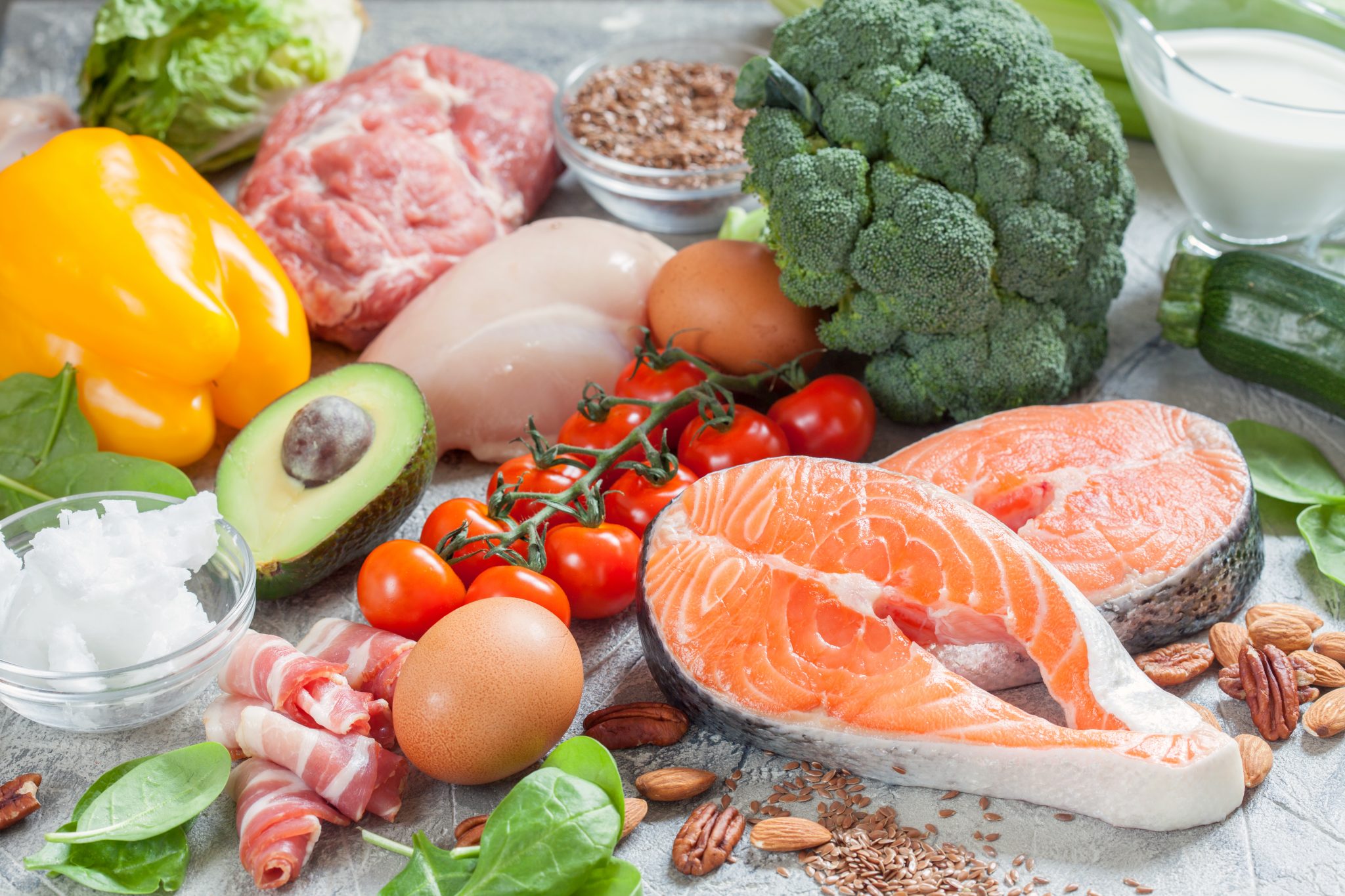To breakfast, or not to breakfast? That’s the million-dollar question… one that seems to polarize health-conscious communities! On one hand, we’ve long been inundated with the message that breakfast is the most important meal of the day and that eating a protein-rich breakfast increases metabolism and makes healthy choices easier for the rest of the day. But on the other hand, the rise in popularity of intermittent fasting (see Intermittent Fasting: Secret to Weight Loss or Dangerous Fad?) has encouraged many of us to say sayonara to our morning meal.
Table of Contents[Hide][Show]
Scientific studies from the last couple of years have revealed a dark side to skipping breakfast, and finally provides concrete evidence supporting the old adage “Eat breakfast like a king, lunch like a prince and dinner like a pauper”.
The Few Pros of Skipping Breakfast…
 The popularity of breakfast skipping comes from old scientific studies showing a potential benefit to energy expenditure and studies in yeast and rodents showing benefits to intermittent fasting. The landscape changed though, with a well-desinged 2017 study published in the American Journal of Clinical Nutrition that shed some light on the contradictory claims surrounding breakfast (or lack thereof)!
The popularity of breakfast skipping comes from old scientific studies showing a potential benefit to energy expenditure and studies in yeast and rodents showing benefits to intermittent fasting. The landscape changed though, with a well-desinged 2017 study published in the American Journal of Clinical Nutrition that shed some light on the contradictory claims surrounding breakfast (or lack thereof)!
Using a randomized crossover design (where every participant undergoes each treatment at a different time, instead of having only a control group and an experimental group), researchers took 17 participants and assigned them to three different one-day diet interventions. One involved skipping breakfast, one involved skipping dinner, and one involved eating the standard three square meals (all of the diets contained the same number of calories and had the same macronutrient ratios: 55% carbohydrate, 30% fat, and 15% protein, not too far off Carbs Vs. Protein Vs. Fat: Insight from Hunter-Gatherers). For each of the interventions, the researchers measured the participants’ post-meal blood glucose, insulin, and inflammatory responses, and also measured their blood sugar and insulin secretion over the course of the full 24-hour day.
As proponents of intermittent fasting might expect, the meal-skipping days had some definite benefits: ditching either breakfast or dinner resulted in slightly higher energy expenditure for the day, and skipping breakfast (but not skipping dinner) increased fat oxidation (AKA fat burning). On the surface, that might lead us to conclude that fasting until lunch would be helpful for weight loss.
…Come at a Major Cost!
 But, the researchers also found some less-that-favorable outcomes from skipping breakfast! During the no-breakfast intervention, participants had higher inflammasome activity (inflammasomes are innate immune system receptors that play a role in inducing inflammation) and greater inflammatory responses of peripheral blood cells later in the day—suggesting higher inflammatory potential associated with breakfast skipping.
But, the researchers also found some less-that-favorable outcomes from skipping breakfast! During the no-breakfast intervention, participants had higher inflammasome activity (inflammasomes are innate immune system receptors that play a role in inducing inflammation) and greater inflammatory responses of peripheral blood cells later in the day—suggesting higher inflammatory potential associated with breakfast skipping.
Likewise, compared to skipping dinner, skipping breakfast led to a 54% increase in the postprandial homeostasis model assessment (HOMA) index (which helps measure insulin resistance) and higher blood sugar and insulin levels after lunch, indicating a decrease in metabolic flexibility (with the implication that a long-term dietary pattern of skipping breakfast could lead to insulin resistance! Yikes!). Skipping dinner, on the other hand, resulted in far fewer unfavorable changes (while still being associated with greater energy expenditure for the day).
The take-home message from this study is that, despite some immediate benefits to total energy expenditure, skipping breakfast on a regular basis could lead to low-grade inflammation and impaired glucose homeostasis.
Other research has shown similar problems associated with skipping (or skimping on) breakfast, including a longer trial in which healthy lean women experienced unfavorable fasting lipids, impaired post-meal insulin sensitivity, and higher energy intake when they skipped breakfast for two weeks straight (compared to a breakfast-eating control group). For overweight and obese participants, eating a high-calorie breakfast versus a high-calorie dinner for 12 weeks was associated with greater weight loss, lower fasting glucose, lower triglycerides, reduced insulin, and lower HOMA-IR (suggesting a metabolic advantage to skewing food intake more towards the morning than towards the night–particularly interesting because not eating for several hours before bed increases sleep quality and there is a strong Link Between Sleep and Your Weight). In people with type 2 diabetes, skipping breakfast (and eating the first meal of the day at noon) resulted in higher postprandial hyperglycemia and impaired insulin response, compared to eating breakfast. In women with PCOS, eating a high-calorie breakfast and sparse dinner (compared to the reverse) caused a significant decrease in glucose AUC and insulin AUC, as well as a reduction in free testosterone (50% reduction), an increase in sex-hormone binding globulin (105% increase!), and even an increased ovulation rate.
Overall, breakfast skipping has been associated with increased risk of obesity, hypertension, insulin resistance, diabetes, and cardiovascular disease.
Two separate meta-analyses published in 2019 show just how problematic over the long-term skipping breakfast can be. The first, published in the Journal of Nutrition, shows that people who ever skip breakfast have a 22% increased risk of developing type 2 diabetes than people who eat breakfast every day, even after accounting for BMI. And, the more days of the week you skip breakfast, the higher your risk. Skipping breakfast 4 or 5 times per week increases risk of type 2 diabetes by a whopping 55%! The second, published in the Journal of Cardiovascular Development and Disease, shows that people who regularly skip breakfast are 21% more likely to develop cardiovascular disease, or die from it, than people who eat breakfast every day. This same meta-analysis shows a 32% higher all-cause mortality (a general measure of health and longevity) in people who regularly skip breakfast compared to people who eat breakfast every day. That’s a HUGE effect!
Nutrivore Weekly Serving Matrix
An easy-to-use and flexible weekly checklist
to help you maximize nutrient-density.
The Weekly Serving Matrix is very helpful! I’ve been eating along these lines but this really helps me know where to focus vs. which foods serve a more secondary role. It’s super helpful and has taken a lot of worry out of my meal planning. Thanks!
Jan
All of this evidence supports the idea that, for a variety of populations, eating food in the morning is
- more beneficial than eating the same quantity of food at night, and
- is superior to not eating anything at all.
Although researchers are still trying to pinpoint the mechanisms behind the unfavorable effects of skipping breakfast, one likely possibility is the daily variations in energy expenditure and metabolism associated with our circadian rhythm. Previous studies have shown that diet-induced thermogenesis is lower in the evening than in the morning (44% lower, in one study!), and we can take advantage of this fact by increasing our food intake in the first half of the day (where it will result in the greatest thermogenesis and the most favorable metabolic effects) and reducing our intake in the evening hours. Likewise, when we skip breakfast, our bodies compensate by increasing cortisol in order to stimulate gluconeogenesis or glycolysis in order to raise our blood sugar. For people who already have dysregulated cortisol levels or impaired insulin or leptin sensitivity, this can lead to either elevated cortisol levels throughout the day, or abnormal cortisol swings (neither of which are a good thing!). See also Demystifying Adrenal Fatigue, Pt. 1: What Is Adrenal Fatigue?
The Verdict on Breakfast
Not only is skipping breakfast unlikely to be a helpful strategy for sustained weight loss, the evidence is now compelling that routinely skipping breakfast has negative long-term consequences to our health. What about intermittent fasting? While the current state of evidence doesn’t support the hype on time-restricted feeding periods or alternate-day fasting, modest benefits can be achieved by skipping dinner and no by skipping breakfast (see Intermittent Fasting: Secret to Weight Loss or Dangerous Fad?).
Citations
Ballon A, et al. “Breakfast Skipping Is Associated with Increased Risk of Type 2 Diabetes among Adults: A Systematic Review and Meta-Analysis of Prospective Cohort Studies.” J Nutr. 2019 Jan 1;149(1):106-113. doi: 10.1093/jn/nxy194.
Farshchi HR, et al. “Deleterious effects of omitting breakfast on insulin sensitivity and fasting lipid profiles in healthy lean women.” Am J Clin Nutr. 2005 Feb;81(2):388-96.
Jakubowicz D, et al. “Effects of caloric intake timing on insulin resistance and hyperandrogenism in lean women with polycystic ovary syndrome.” Clin Sci (Lond). 2013 Nov;125(9):423-32. doi: 10.1042/CS20130071.
Jakubowicz D, et al. “Fasting until noon triggers increased postprandial hyperglycemia and impaired insulin response after lunch and dinner in individuals with type 2 diabetes: a randomized clinical trial.” Diabetes Care. 2015 Oct;38(10):1820-6. doi: 10.2337/dc15-0761. Epub 2015 Jul 28.
Jakubowicz D, et al. “High caloric intake at breakfast vs. dinner differentially influences weight loss of overweight and obese women.” Obesity (Silver Spring). 2013 Dec;21(12):2504-12. doi: 10.1002/oby.20460. Epub 2013 Jul 2.
Ofori-Asenso R, et al. “Skipping Breakfast and the Risk of Cardiovascular Disease and Death: A Systematic Review of Prospective Cohort Studies in Primary Prevention Settings.” J Cardiovasc Dev Dis. 2019 Aug 22;6(3). pii: E30. doi: 10.3390/jcdd6030030.
Nas A, et al. “Impact of breakfast skipping compared with dinner skipping on regulation of energy balance and metabolic risk.” Am J Clin Nutr. 2017 Jun;105(6):1351-1361. doi: 10.3945/ajcn.116.151332. Epub 2017 May 10.











